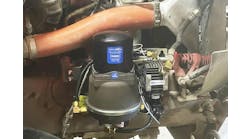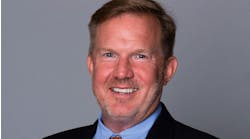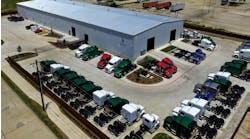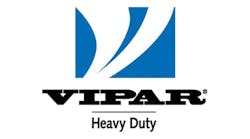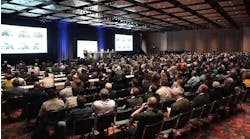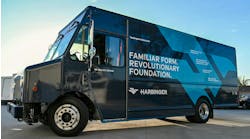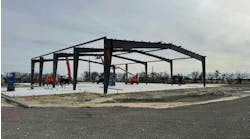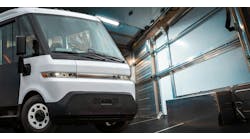FMI: Why not? Truck dealer, upfitter solves problems through innovation
It might sound inappropriate to say that Don Emerson has built Portland, OR-based FMI Truck Sales & Service on the confusion of truck customers, but it wouldn’t be completely inaccurate, either. Just don’t get a negative—and wrong—impression.
“When you look at the word ‘dealership,’ people think ‘car dealer.’ They walk in and expect their vehicle to be ready to go. They negotiate the price and then they go home with it,” he says. “We deal with people who aren’t even in the trucking business, and a lot of time they don’t understand what it takes. They think the trucks just come with the bodies they need.”
Simply, customer expectations are different. He learned early on that, for his dealership to be successful, he would need to be his customers’ equipment expert. A deal to sell trucks to a local bread company helped get the business off the ground, and Emerson still recalls a conversation with the fleet manager.
“I told him he could tell me within a hundredth of a penny what a loaf of bread costs, but that he couldn’t tell me within a buck a mile what it costs to run his trucks,” Emerson says. “He looked at me dead serious and said, ‘Don, if my trucks don’t run I don’t deliver a loaf of bread and nobody gives me any money.’ And that’s the bottom line.”
And while it might be difficult for a truck dealer to see his products as “a necessary evil,” Emerson has come to appreciate that many customers simply want a tool that works so that they can focus on their real business.
“They don’t want to think about them—they don’t think about them,” he says. “Until they break.”
FMI began as an independent Class 8 repair shop in 1985. Then a customer bought 100 Hinos for its fleet, and wanted to know if the shop could service the 20 them headed to Portland.
“What is Hino?” Emerson recalls asking. “I’d never heard of them and never written a maintenance contract.”
A regional manager for Hino passed on the names of 50 companies in the Pacific Northwest that were running Hino trucks, and Emerson contacted every one of them—just to get a sense of what he might be getting into. But he was sold, and then he started selling. FMI became a full-service Hino Diesel Truck dealership in 1989 and added the Isuzu franchise in early 1992.
“At that point I said to our guys, ‘I’m not rich enough and smart enough to be everything to everybody, but we can be the best at something,’” Emerson says of the decision to concentrate on medium-duty and work trucks.
The company now operates two shifts from three dealership locations, and will sell about 450 trucks this year, with 250-300 bodies on them.
FMI also has diversified into body fabrication and installation, rental trucks, and specialty components.
Truck equipment
The move into the body equipment business was similarly serendipitous. A customer, a furniture mover, needed a truck with a 16-foot body because a driver had just wrecked one. Emerson had a couple on the lot, but the customer rejected one based on the body brand. Why? Simply, as Emerson explains, he had a matching truck on the lot, but it had the same body as the customer’s previous truck—but the body didn’t come with any tie-downs.
“The other truck on the lot had a different brand body, and when the customer saw the slat lines, he said it was just what he was looking for,” Emerson explains. “A good salesman knows when to stop talking.”
But he got to thinking. The customer had been buying plain cutaways off a lot. He was completely unaware that bodies could be thoroughly customized.
Emerson likens shopping for a work truck to shopping for a hammer: Imagine going to the hardware store and finding an array of beautiful oak handles, but no heads.
“A lot of medium-duty truck dealers can tell you everything you’d want to know about the chassis, but nobody’s going to do anything with just those two frame rails,” Emerson says. “We decided we needed to learn about the back end.”
And, as modern trucks and bodies have become increasingly sophisticated and complex, “a lot of finger pointing” has developed between dealer and equipment companies. And Emerson points, for example, to driver comfort and convenience features that often interfere with the way a body needs to operate.
“As a company, we sell a complete tool,” he says.
Specialty products
Emerson’s “why not” approach extends to FMI’s specialty products.
He claims credit for being the first electric truck manufacturer in the U.S., for instance. In 1999 FMI began pulling the motors out of Isuzu and converting them to electric drive for airport service vehicles.
Of course, there’s a story. Isuzu had invited Emerson to the GSE (Ground Support Equipment) Expo, and he was unaware of the size and scope of the business. A speaker, representing American Airlines GSE team, mentioned the company had 10,000 pieces of ground equipment—at DFW alone. And that got Emerson’s attention.
“The dirtiest place in any big city is the airport: airplanes, buses, cars come and go,” he says. “EPA saw ground support equipment was low-hanging fruit [for electrification]. They don’t go very far or very fast, and there’s all kinds of power at the airport. So they started mandating.”
The vehicles on display at the Expo that year were obviously handmade and poorly finished, he noticed. And they were expensive. And his electric Isuzu business was born, with his first electric trucks going to the international terminal at LAX for aircraft fueling. Air BP was next, with trucks going to Puerto Rico and kits that were exported to Australia for conversions there.
“You had commonality in all of your components except the engine, with all the features you normally would in a commercial vehicle,” Emerson says. “For the same price you have a factory engineering wiring harness; you have tight cabs. There are a lot of benefits.”
His secret for winning these kinds of contracts: “You’ve got to go for them,” Emerson says. “There’s no magic. If you believe in something, you’ve got to put it together, get it out there, and let people try it.”
And, in terms of working with OEMs on such projects: “Sometimes it’s easier to ask for forgiveness than permission,” he admits.
As another example, FMI currently specializes in a unique portable restroom service truck the company designed for its cabover chassis. Typically, the container bodies were designed for conventional trucks. But a customer had installed one on a cabover and the tank overloaded the front axle when full of fresh water. The customer complained about the ride and brake wear. Emerson explained that the body wasn’t built for that style truck. The customer then challenged him to do better.
The result is the FMI WorkMate brand of portable sanitation trucks, with a transverse main tank, keeping the center of gravity over the dual wheels. The design also greatly expands the storage space on the body, meaning room for additional toilets and storage. The time savings provided the customer the ability to cover more stops.
“I knew I couldn’t do any worse,” Emerson jokes. “You’ve got to figure out how to be a problem solver.”
Parts and service
FMI sells trucks and parts nationwide and serves the repair and service needs of companies in Oregon and southwest Washington. FMI’s core business remains Hino and Isuzu truck sales, Japanese truck service and repair, and the sale of Isuzu, Hino and UD parts. Indeed, FMI is the largest supplier of new Isuzu and Hino parts in the Pacific Northwest.
“Our business doesn’t have huge margins. We don’t make a lot of money selling trucks, but we want your parts and service business,” Emerson says. “We want long-term relationships. If I’m a car dealer, I can turn and burn you on a sale. There are more than a million other people in Portland I can sell a car to. There’s about 5,800 companies that run medium-duty trucks in Portland. I’d rather not sell you something if we don’t have the right tool. It’s too small of a neighborhood.”
But Emerson is quick to note that customers “love” one-stop shopping. His parts team has built “a great following” by having about anything a work truck customer might need.
“Our customers are in this area. Their trucks come home every night,” Emerson says. “Our service department stays busy because I don’t sell a Class 8 truck that needs service in Omaha. Same with the back end.”
Innovation
The list of truck modifications, body designs, equipment add-ons, even truck controllers and shift inhibitors, is extensive. But most of the ideas and products are the result of what Emerson call “farm engineering,” or seeing a problem and fixing it.
“The thing I love about this business is the cross-pollination of ideas. We go into pretty much every kind of business there is, and I’m amazed how they’re not even aware of the things that are available in this industry,” Emerson say. “Anybody can hawk metal, but if you build that better mousetrap and help somebody run their business better, then you have a customer for life. You become a partner.
“We’re in the people business—we just happen to be selling trucks and fixing trucks.”
For more information on FMI Truck Sales & Service, click here.
